Covid: Blackburn health chief 'furious' over surge vaccination refusal
- Published
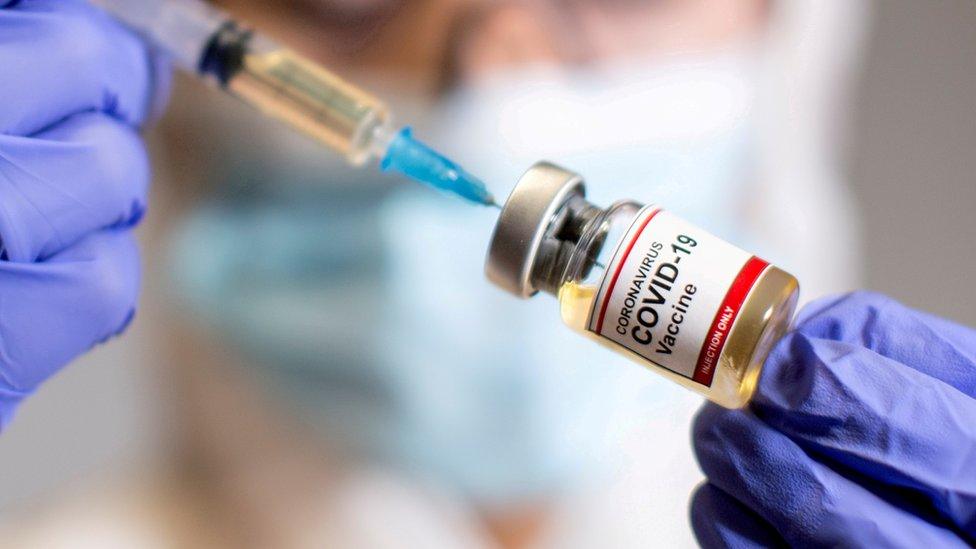
People aged 38 and 39 are now being invited to receive vaccines across most of the UK
A public health director has said he is "furious" the government has refused to allow extra vaccinations to halt the spread of the Covid-19 Indian variant.
On Thursday, Blackburn with Darwen Council initially said all over-18s would be offered a jab, before later stating only those with underlying conditions could book a vaccination.
Prof Dominic Harrison said not allowing wider vaccination was "illogical".
The government said surge testing would be rolled out to the area.
The Department for Health and Social Care (DHSC) said those without symptoms in certain areas of Blackburn with Darwen would be urged to get PCR tests from Tuesday, following the identification of cases of the Indian variant.
It said: "Everyone who lives, works or studies in targeted areas within Shear Brow and Corporation Park, Billinge and Beardwood and Bastwell and Daisyfield, Blackburn with Darwen should take a Covid-19 PCR test."
On Thursday, the prime minister's spokesman said surge vaccinations had not been ruled out as a way to deal with the rise.
Vaccines Minister Nadhim Zahawi also said the government was considering reducing the gap between vaccine doses for people in areas where the variant is spreading.
The latest figures show the town recorded the third highest infection rate in England, with an 89% jump in cases compared to the previous week.
The recent rise in cases in Blackburn has been linked "in part" to the new Indian variant.
'Clear risk'
Prof Harrison said the borough had been arguing to accelerate vaccinations since February and it was "illogical that we are not empowering local authorities to do this".
"I am furious," he said.
"I cannot understand why JCVI [Joint Committee on Vaccination and Immunisation] or Department of Health and Social Care are stopping local directors of public health from taking the action they know will halt this surge of the Indian variant."

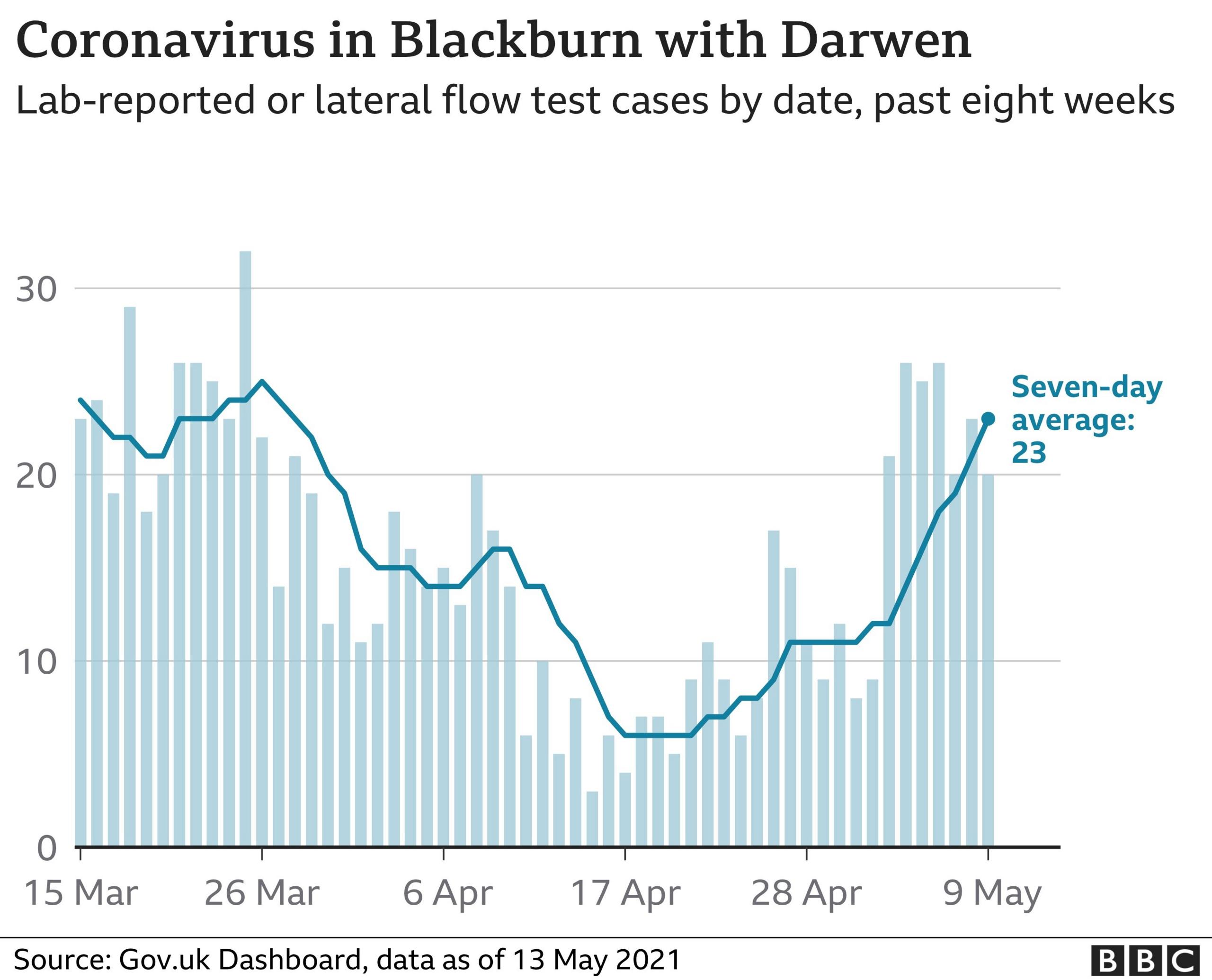

He said the issue of dealing with variants was "not just going to be a problem for the number of authorities that have been first hit".
"Variants in general are going to be a problem over the next 12 months and what we need is a very clear action plan to cope with them," he added.
"What we need is not to threaten local areas with lockdown if their rates go up with variants, but support them to take action."
Surge testing has already begun in other areas of north-west England where cases involving the Indian variant are on the rise.
The "variant of concern" has been also been detected in Bolton in Greater Manchester and Sefton on Merseyside.

Analysis
By Rob England, BBC England Data Unit
These areas identified as seeing a rise in variant cases have several things in common in the latest data.
All three have seen the number of cases double in a week compared to the previous week.
They are also all in the top 10 places with the highest infection rates in England - with Bolton having the highest at 192 cases per 100,000 people living there.
Mass testing is being deployed across neighbourhood hotspots, and officials have indicated - for those eligible - efforts will be taken locally to enhance the vaccine rollout.
But there are also positive signs. Hospital admissions and deaths due to coronavirus in these areas have not seen a rise in line with cases, and there is no evidence at the moment to suggest they will.
This sets the current situation apart from the January surge - where all three measures, cases, hospital admissions and, sadly, deaths all rose one after the other.
Also, at this point very few people had been vaccinated, which is not the case now.

Blackburn with Darwen Council initially said on Thursday that it would be offering vaccines to all over-18s from next week following the increase in cases, but later clarified that, although additional vaccine clinics were being set up, the jab would only be offered to those eligible under current government guidance.
Prof Harrison said the government was "tying one hand behind my back with responding to the clear risk we've got in our local authority area, but also the clear risk to the wider North West region."
Lancashire's director of public health Dr Sakthi Karunanithi said he shared Prof Harrison's "fury" over the decision and would continue to advocate for extra vaccinations.
He added that the variants were "spreading quickly" through the county, but "largely" as outbreaks, "which we are managing and containing, but they are starting to spill into the community".

Why not follow BBC North West on Facebook, external, Twitter, external and Instagram, external? You can also send story ideas to northwest.newsonline@bbc.co.uk, external
Related topics
- Published14 May 2021

- Published13 May 2021

- Published13 May 2021
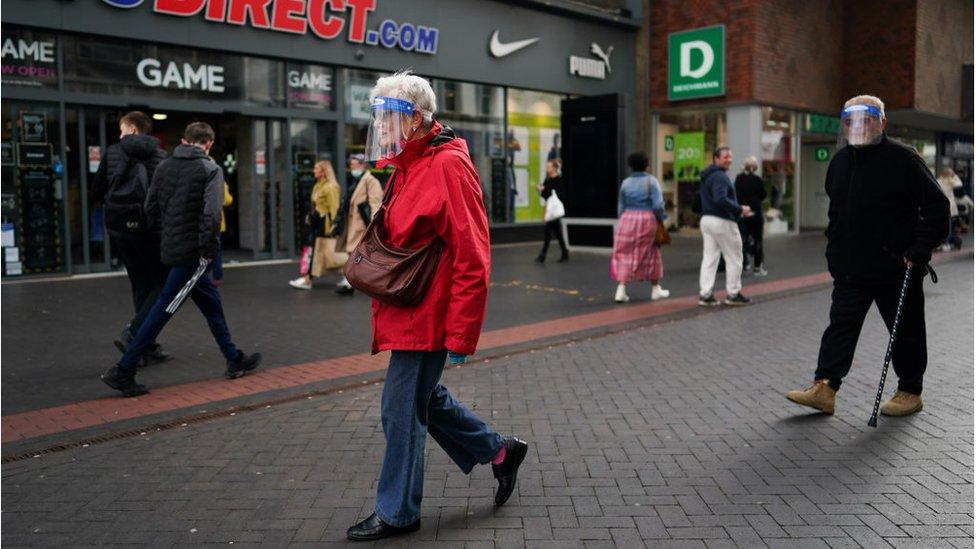
- Published13 May 2021
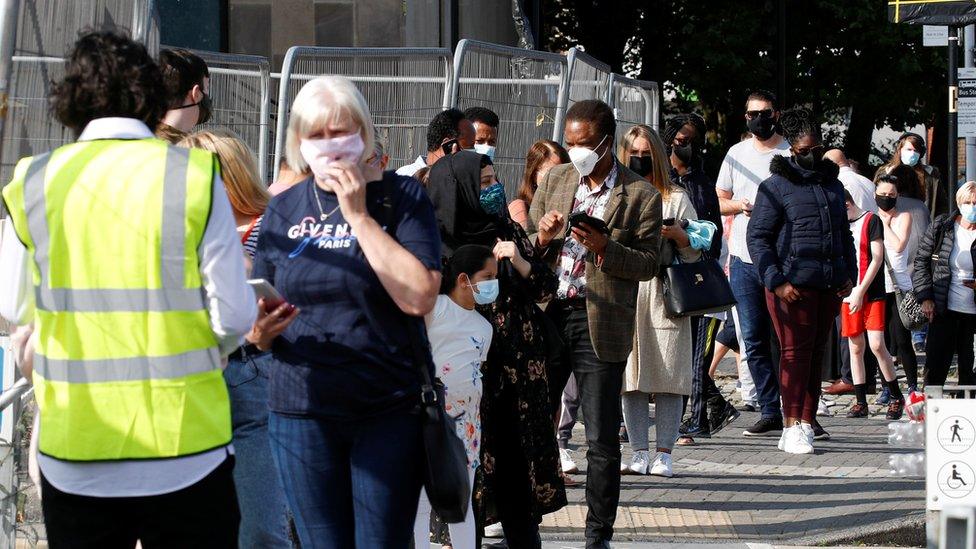
- Published7 May 2021
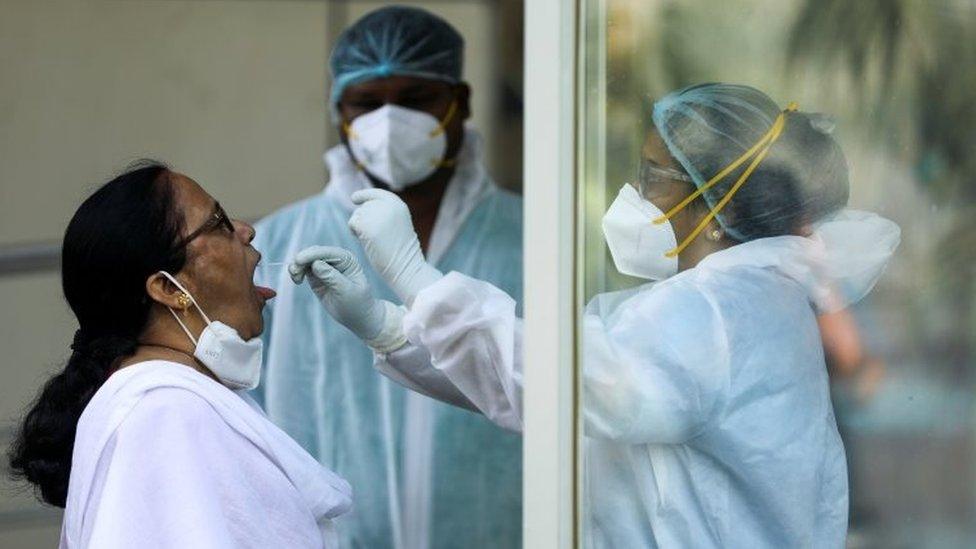
- Published7 May 2021